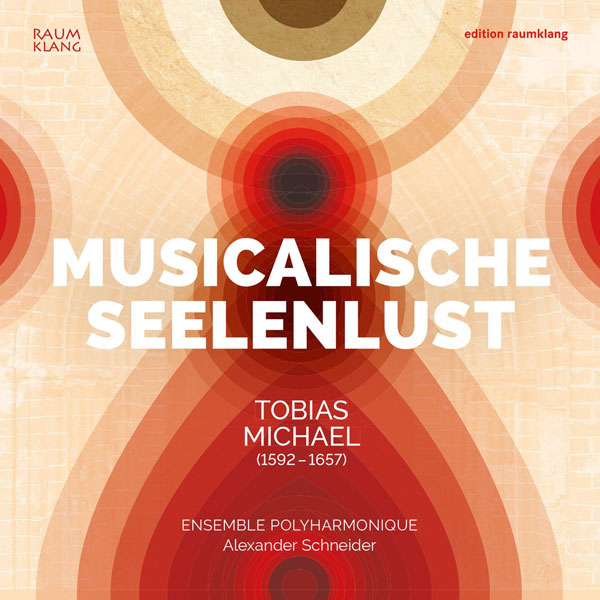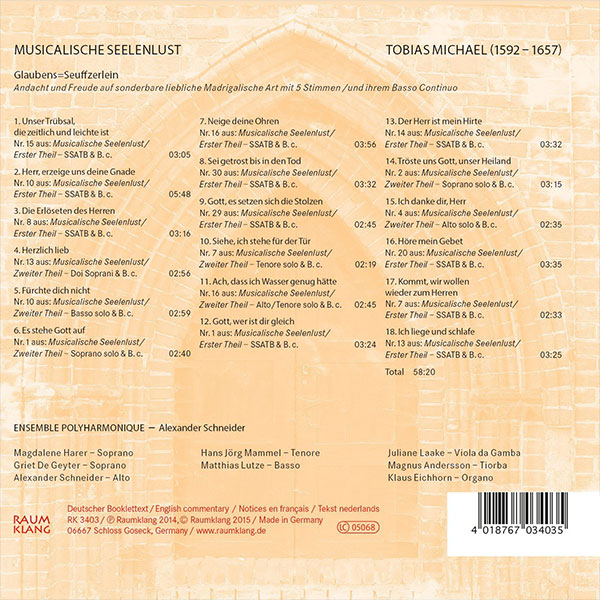Musicalische Seelenlust – Tobias Michael (1592 – 1657)
The position of Thomaskantor in Leipzig was one of the most prestigious in Central Germany in the 17th and 18th centuries. It was held by the most respected composers of their time. It is a little surprising that today little attention is given to their compositional oeuvre, with the exception of Johann Sebastian Bach. Among his predecessors Johann Hermann Schein is probably the best-known. Johann Kuhnau, Bach’s immediate predecessor, is certainly a well-known name, but little of his music is performed or recorded, except his Biblische Sonaten, a collection of pieces for keyboard. His precedessors Johann Schelle (1677-1701) and Sebastian Knüpfer (1657-1676) don’t fare much better. The present disc includes music by the least-known Thomaskantor of the 17th century: Tobias Michael.
Tobias was the second son of Rogier Michael (c1552-1619?) who was from Bergen op Zoom in the Netherlands, sang in the Vienna Hofkapelle and acted as Hofkapellmeister in Dresden from 1587 until his death. Tobias received the first music lessons from his father and in 1601 became a member of the Dresden Hofkapelle. In 1609 he was admitted to Schulpforta, the electoral school near Naumburg that specialized in music and the humanities. From 1613 to 1618 he studied philosophy and theology at Wittenberg University. In 1619 the counts of Schwarzburg and Hohenstein appointed him Kapellmeister of the Neue Kirche in Sondershausen (Thuringia). In 1630 Johann Hermann Schein died and Michael applied for the post of Thomaskantor. The fact that he was elected unanimously attests to the high esteem in which he was held. Michael was able to raise and then keep the standard, despite the tribulations caused by the Thirty Years’ War. It is an indication of the choir’s repute that in 1648 Heinrich Schütz dedicated his Geistliche Chor-Music to Leipzig and its “famous choir of such renown”.
Michael’s compositional output is not very large, even if we consider that part of it has been lost. It includes a number of occasional compositions and some chorales and sacred songs. The present disc includes pieces from the two volumes which Michael published between 1634 and 1637 under the title Musicalische Seelenlust. This is the most important part of his oeuvre. The first volume comprises 30 sacred madrigals which show strong similarity with Schein’s Israelis Brünlein already mentioned. They have the same scoring: five voices – SSATB – and basso continuo. The texts are from the Bible, mostly from the Old Testament. Like Schein’s sacred madrigals they show the influence of the Italian style – What a rediscovery!


